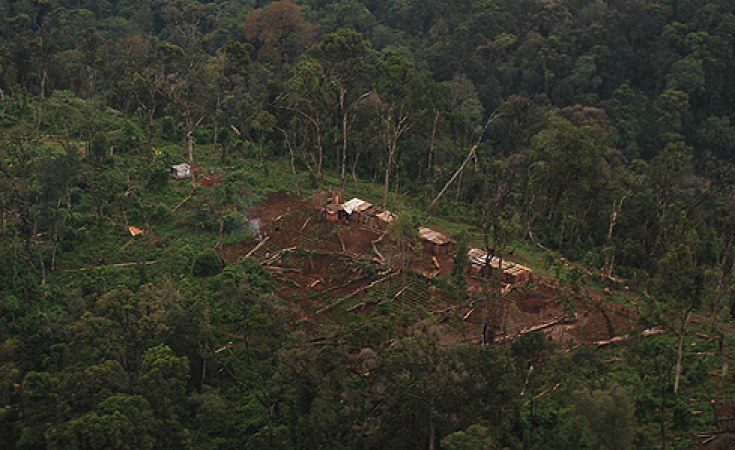Mau Forest, Kenya — 'We should not be the last generation.'
Evictions of the Indigenous people who inhabit the Mau Forest in the Great Rift Valley in Kenya, known as the Ogiek, have been happening ever since British colonialists first forced many of them into reserves in the 1920s.
Joseph Towett, 53, is just one of thousands of modern-day victims. His family was evicted in the late 1990s from the forest and settled in Molo, Nakuru County. As one of the very few to be resettled, he is more fortunate than most.
"In the history of Mau, there have been 17 evictions. Fifteen evictions targeted the Ogiek. They were being removed, and the settlers created land," Towett told The New Humanitarian, interviewed for the film below highlighting their plight.
Successive Kenyan governments bungled the resettlement of the Indigenous Ogiek people for political interests, leaving many of them homeless. Towett is now advocating for the rights of 20,000 Ogiek community members who have either been evicted without reparations or who still have the threat of eviction hanging over them.
But the Ogiek now face a new threat: environmentalism.
In the Nairobi declaration, made during the Africa Climate Summit in September 2023, Kenyan President William Ruto called for the decarbonisation of the global economy, describing it as an "'opportunity to contribute to equality and shared prosperity".
This couldn't be further from the experience of the Ogiek: Human rights activists accuse the Kenyan government of illegally driving the hunter-gatherers off their land to pursue profits from carbon offsetting schemes.
The Mau Forest is a complex of 22 indigenous forest blocks, swamps, and rivers. At 400,000 hectares, it is the largest indigenous montane forest in East Africa and Kenya's largest water tower - critical for climate conservation.
Satellite data from Global Forest Watch shows that Mau lost 19% of its tree cover between 2001 and 2022.
Kenya's government blames the destruction on the people living inside and close to the forest, but Mordecai Ogada, a conservationist, disagrees. He told The New Humanitarian that problematic environmental policies and the temptation of carbon credit profits are the real culprits: "The government needs to find itself clear policies, because what we have right now is complete dissonance between what they say, what they do, and what external people are telling them to do, and I think the impetus right now to move the Ogiek is the promises of money from these carbon credit brokers."
According to Mordecai, the failure of government policies poses a greater danger to water catchment areas than the activities of people living in forests.
As Kenya's government grapples with trying to balance its conservation policies and human rights, the Ogiek community fears for its identity, its history, and its very survival, as the future of people's livelihoods is increasingly in doubt.
"We have become refugees of ourselves now, talking about how our forefathers lived," said Towett. "We should not be the last generation... we have to address the environmental needs and challenges that we are facing."
The most recent eviction of the Ogiek people took place in late 2023, despite court orders prohibiting such evictions. Currently, over 100 people live in forest camps, but many more have fled the area to nearby villages, fearing for their safety.
Reporting and story by Namukabo Werungah. Video editing by Ciara Lee. Videography by Eric Okoth and Tobias Messo as field producer.
Namukabo Werungah, Staff Editor and Reporter, Breaking News and Social


